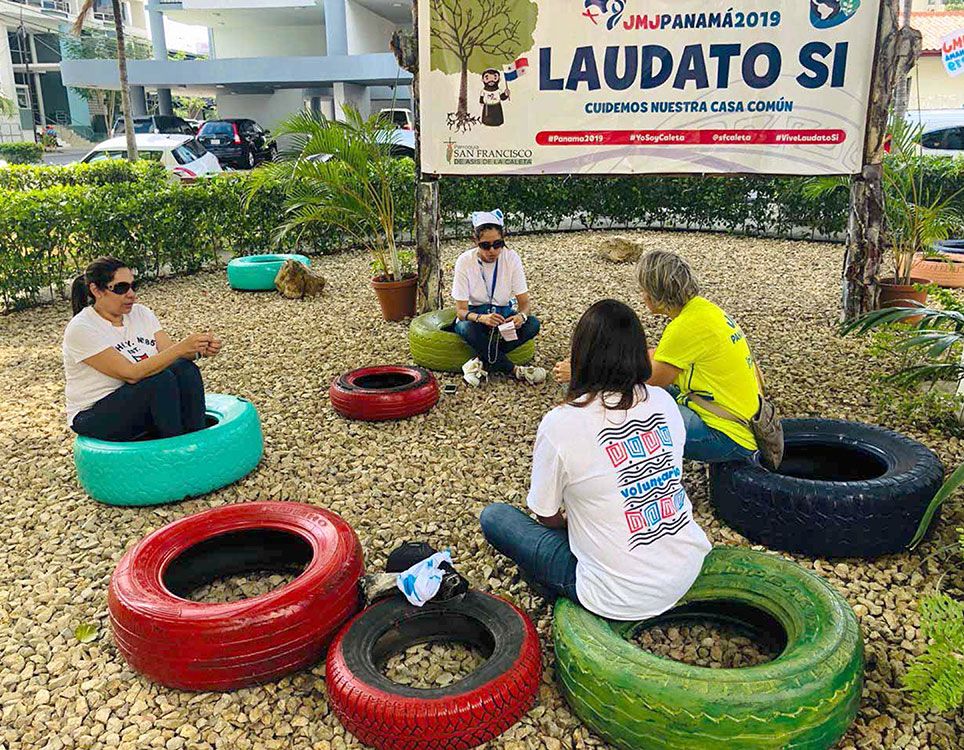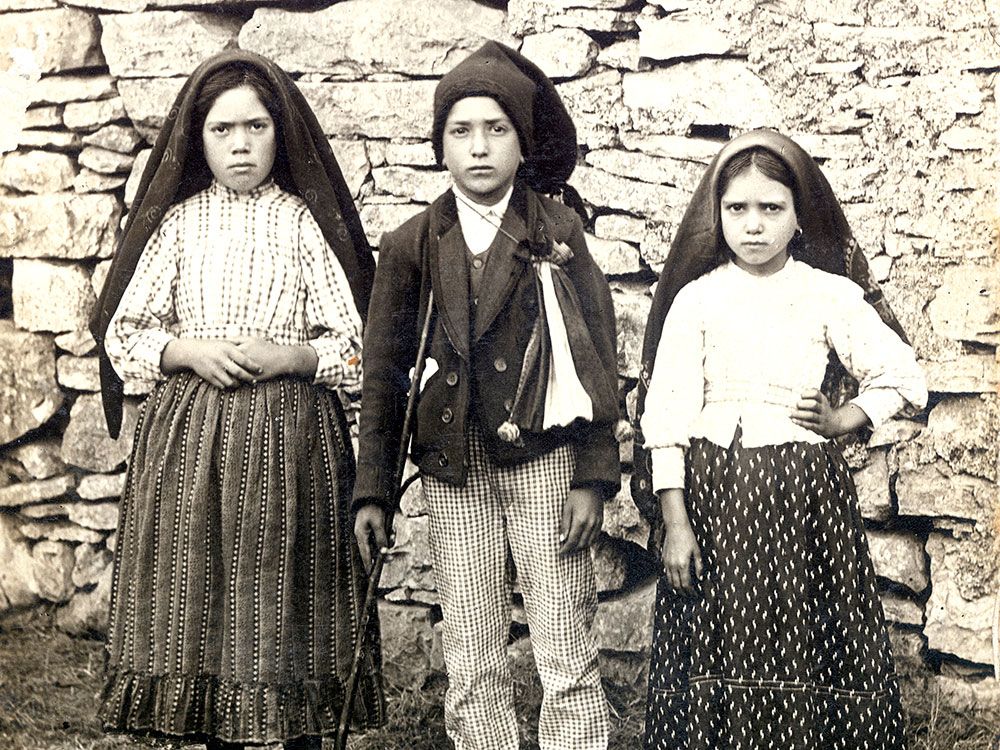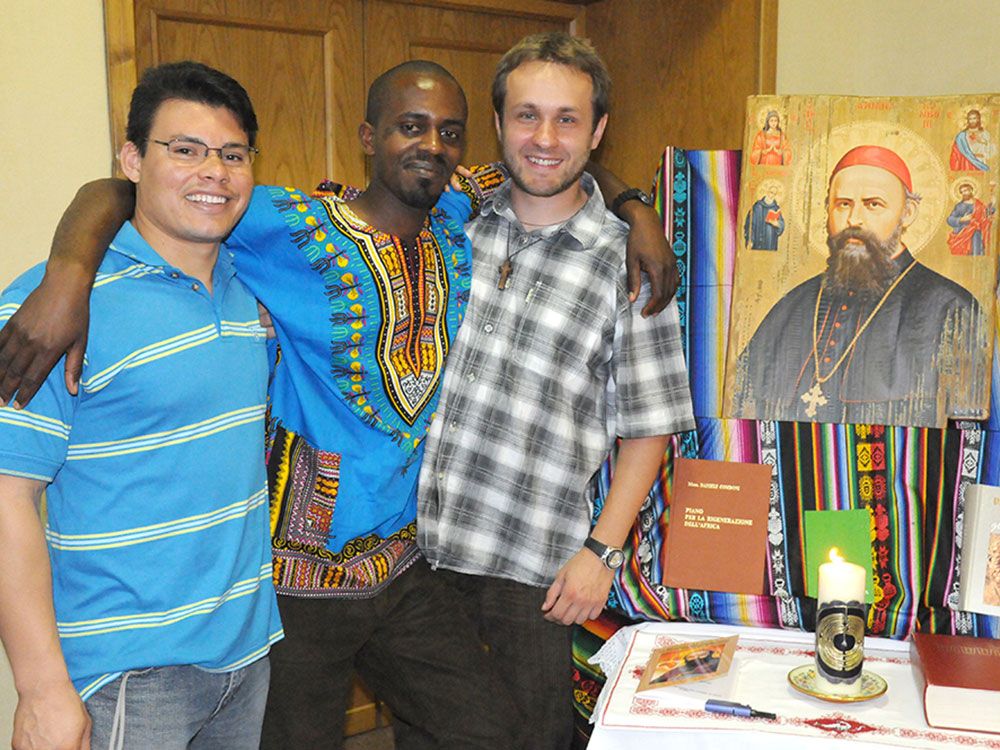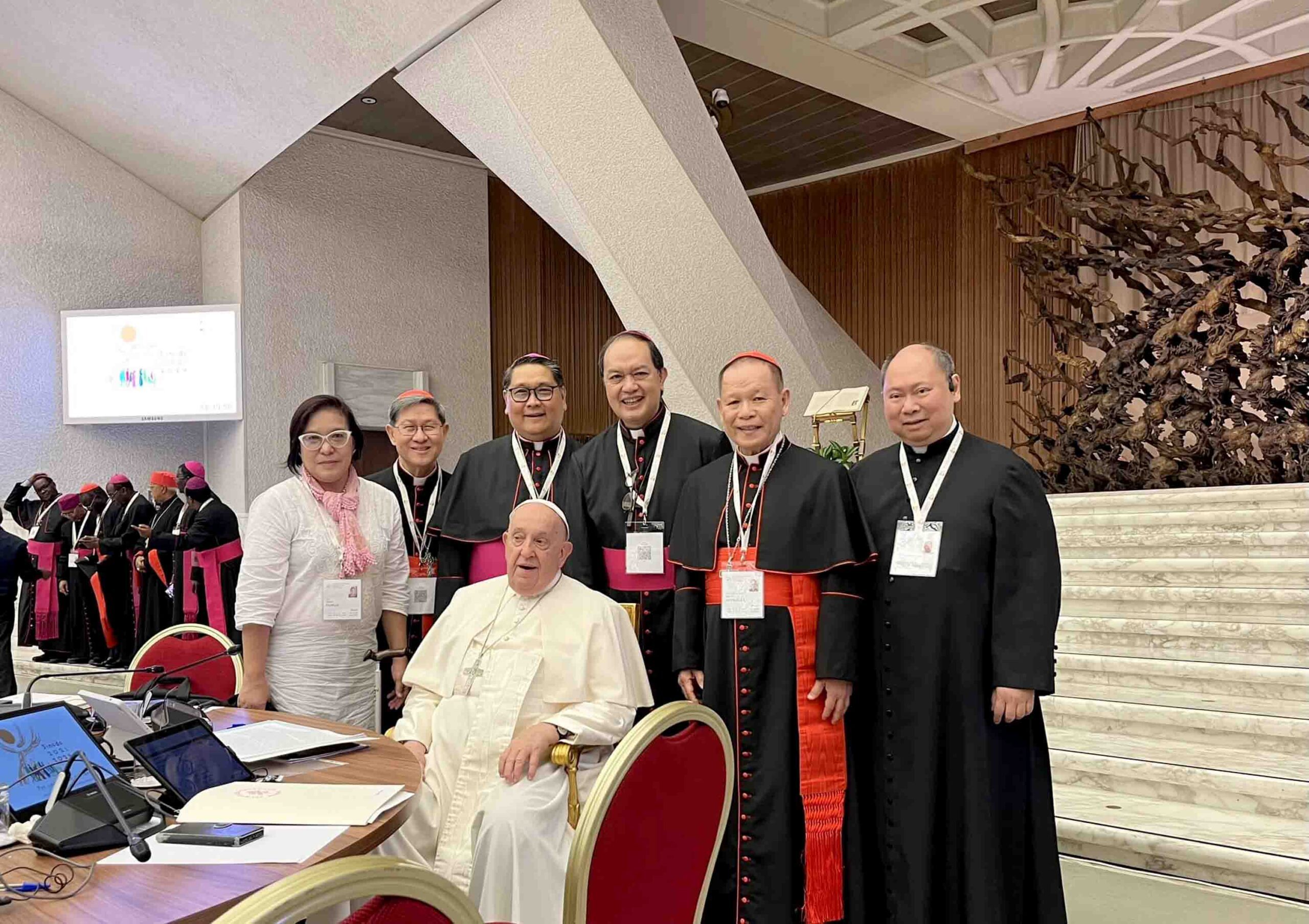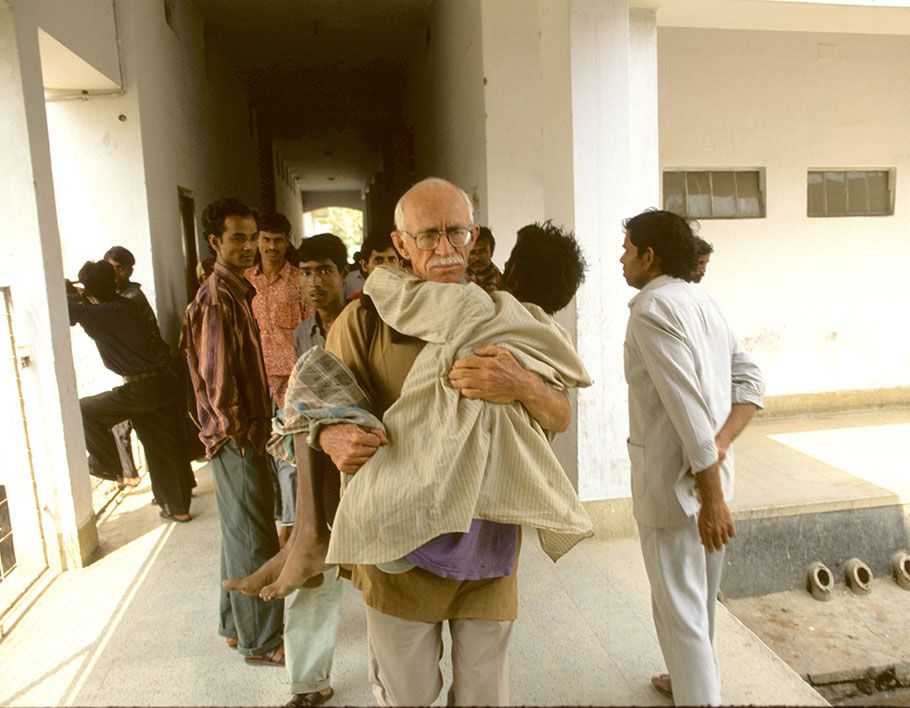In the past two decades, both the late Pope John Paul II and Pope Benedict XVI have addressed the ecological issue on a number of occasions. The most notable documents are: Peace with God the Creator: Peace with All Creation (January 1, 1990), Chapter 10 of the Compendium of the Social Doctrine of the Church (2004), Caritas in Veritate (July 2009), If You Want to Cultivate Peace, Protect Creation (January 1, 2010) and The Address of His Holiness Pope Benedict XVI to the Members of the Diplomatic Corps (January 11, 2010). I find the claim, that these are very competent and insightful documents from an ecological perspective, difficult to support, for a number of reasons.
Firstly, none of the above documents gives any overall sense of the magnitude of the current ecological crises facing the planet, humankind and every other creature. The only document that has any sense of the overwhelming nature of the problem was an address by Pope John Paul on January 17, 2001, in which he called for an “ecological conversion” for everyone. In that address, he used the word catastrophe, and that humanity needed to stop before the abyss. This document is not found in the Compendium of the Social Doctrine of the Church, nor have I seen it quoted in official documents since. It seems to me that, if an individual or institution does not have an accurate appraisal of the true magnitude of the ecological challenges facing the earth, one cannot claim that that individual or institution understands the current ecological crisis. Furthermore, unless one understands the magnitude of a problem, one cannot design an appropriate response. So, despite an increased sprinkling of ecological language and concerns in addresses and documents from the Holy See, these still lack an accurate analysis of the problem. One can make all kinds of excuses, for example, that the immediate problems facing the human community are so immediate and pressing that there is little energy left to look beyond to what is happening to the wider earth community, even though this will have dire consequences for every creature, including humankind.
Take the two most serious ecological issues facing the planet – climate change and the destruction of global biodiversity, or, in theological language, the irreversible destruction of God’s creation – both of these concerns only merit one paragraph each in the Compendium of the Social Doctrine of the Church. Given the enormous pain, death and destruction that each of these human-created global phenomena are, and the devastation they will continue to wreak on the planet, every living creature and humankind, a single paragraph from the leadership of Catholic Church is, in my opinion, incompetent and not very responsible.
Urgency of dealing with the crisis
The second element which ought to inform any ecological analysis is clarity about the urgency of tackling the issue. Is it something that must be addressed on a massive scale immediately, or is it something that can be postponed until other issues, such as poverty or unemployment are first confronted and solved? Once again, in reading the above documentation, one gets no sense that the authors are aware of the urgency of the particular issue. On climate change, for example, the Intergovernmental Panel on Climate Change (IPCC) made it clear that we have until about 2016 to begin to reduce the amount of greenhouse gases emission if there is to be any realistic chance of keeping the average rise in global temperature below 2 degrees Celsius. In the past two years, the scientific consensus has moved towards the conclusion that we will need to reduce carbon emissions to 350 parts per million if we want to achieve that goal. The scientific consensus is also clear that, if global temperatures rise above an average of 2 degrees Celsius, huge areas of the planet will be uninhabitable for humans and many other creatures. This is why the failure to reach a fair, ambitious and binding treaty at Copenhagen in December 2009 was such a tragedy.
On December 6, 2009, after praying the Angelus, Pope Benedict XVI wished success to the world leaders who would gather in Copenhagen to seek an agreement on how to tackle climate change in a fair and just way. In his brief remarks, the Pope recalled that the way to protect the earth was to include respect for God’s laws and the moral dimension of human life. He went on to say: “I hope that the work will help identify actions respectful and favorable to solidarity development founded on the dignity of the human person and oriented towards the common good.” He spoke about protecting the interests of the poor and future generations. It is a pity that he did not include the public details of the Holy See’s position at the Copenhagen Climate Change Conference.
At all the previous UN Climate Conferences, the Holy See was represented by the local nuncio who could not be expected to have a detailed knowledge of the various strands of the negotiation. In Copenhagen, the delegation of the Holy See was headed by Archbishop Celestino Migliore, the Permanent Observer of the Holy See to the United Nations in New York. He has written and spoken regularly about climate change within the UN. The delegation included a climate expert, Marcus Wandinger, and Paolo Conversi, an official from the Vatican Secretariat of State who also teaches human ecology at the Pontifical Gregorian University in Rome. The Vatican delegation lent its support to a robust treaty which involved sufficient curbs on greenhouse gas emissions to keep the average global temperature below 2 degrees Celsius. The target set for rich, industrialized countries was a 40% reduction in greenhouse gases before 2020. It also championed a scaling up of the Adaptation Fund to, at least, $195 billion per annum. This would be made available to economically poor countries in order to help them adapt to the climate change consequences which are already in the pipeline. I believe that it would have been very effective, in terms of moral pressure, if Pope Benedict XVI had included these figures and the rationale behind them in that Angelus address or in Caritas in Veritate for that matter. As it is, very few people know what the Vatican’s position is on reducing greenhouse gas emissions.
Ecology is a science based on data
Thirdly, ecology is a science which is based on empirical data about what is happening in particular ecosystems and the biosphere as a whole. Despite this data-focused nature of ecology, none of the above documents base their reflections on ecological issues on scientific data. The drafters of these documents have made available to them competent scientific data from reputable bodies such as the IPCC or, in the area of the destruction of biodiversity, from the UN Convention on Biodiversity, but there is no reference to these bodies or any other scientific authorities. This is in clear contrast to the way the drafters of papal documents use economic, social, political and historical data in dealing with almost every other aspect of Catholic social teaching. They have no difficulty referring to research conducted by the International Labor Organization (ILO). Why is there one modus operandi when dealing with economics and a different one when it comes to looking at ecological issues? Other religious organizations, such as the World Council of Churches, include scientific data in their reflections on issues such as climate change. Similarly, Bishops’ Conferences in Germany, Ireland, the Philippines, the United States and Australia base their moral and religious reflections on ecological issues on both empirical data and the understanding of the universe and the role of humankind which is found in the scriptures and religious traditions.
In a reflection entitled, “Benedict XVI Offers Middle Ground on Environment,” on www.zenit.org (January 10, 2010), Archbishop Giampaolo Crepaldi, the Secretary of the Pontifical Council for Justice and Peace gave, what I consider, an extraordinary explanation for this lack of scientific data in papal documents on the environment. He claimed that “in the countries of north-central Europe, and especially in Germany, Benedict XVI’s encyclical “Caritas in Veritate” was the object of severe criticism, precisely in regard to the question of the environment and, particularly, in regard to climate change.” He continued: “So it was logical to look forward to the message of this year’s World Day of Peace dedicated to the theme “If You Want to Cultivate Peace, Protect Creation.” “Benedict XVI did not miss the opportunity to restate his teaching and, thus probably upsetting once again all those who tend to weigh down ideological themes with excessive ideological burdens. The central point of the message is, in my opinion, a passage from paragraph 13, where the Pope says that ‘a correct understanding of the relationship between man and the environment’ will not end by absolutising nature or by considering it more important than the human person.” Speaking about the papal document, Crepaldi continues: “the Church expresses misgivings ‘about notions of the environment inspired by eco-centrism and biocentrism’ because it eliminates the difference between man and other living things, favoring an ‘egalitarian vision of the dignity of all living creatures.’” “This thus gives rise to a new pantheism with neo-pagan accents which ‘would see the source of man’s salvation in nature alone, understood in purely naturalistic terms.’”
A homocentric vision of creation
The Archbishop is probably referring to the teaching of the Deep Ecology Movement associated with the Norwegian philosopher Arne Naess. This movement insists that “all things in the biosphere have an equal right to live and blossom and reach their individual forms of unfolding and self-realization with the larger Self-Realization.” I do not know of a single Catholic theologian who accepts this position. Many competent theologians, such as Fr. Denis Edwards from Australia, Dr. Celia Dean-Drummond or Dr. Mary Grey from Britain, Elizabeth Johnson, Mary Ellen Tucker or Thomas Berry from the U.S, Leonardo Boff from Brazil or myself, rightly situate humankind within an emergent cosmology and a living, evolving world. But even before modern scientific discoveries gave us an insight into the extraordinary age of the universe and its evolutionary emergence, Francis of Assisi was telling us that all creatures are kin, in other words, part of our family. He expressed this most beautifully in the Canticle of the Creatures. All creatures are understood as kin. St. Francis was not a pantheist and he is the patron of ecology. In an otherwise positive review of Caritas in Veritate, Irish theologian Fr. Donal Dorr writes that “the whole encyclical is written from within an older anthropocentric paradigm, the ecological issues are treated almost entirely in terms of present-day human concerns. What is needed today, however, is a kind of Copernican revolution leading to a major paradigm shift. We need to locate all our human concerns – and especially our approach to economics – within the far wider context of an ecological and cosmic vision. Nothing would be lost and much would be gained if what the Pope had written in this encyclical about economics and business were framed within this wider vision.”
An exclusively homocentric view of creation is understandable for people such as Archbishop Usher of Armagh who calculated around the year 1630, using the Hebrew Scriptures and other ancient documents, that the earth was about 6,000 years old and that all the creatures which are now on earth were there from the beginning. Today, we know from the various sciences that the earth is almost 5 billion years old and that life on earth is about 3.8 billion years old. There were fully functioning ecosystems in the Lower Carboniferous period from 354 to 324 billion years ago. At that time, there were no flowering plants or birds, but there were giant horsetails and ferns and an array of creatures, most of which are now extinct. In religious terms, I am sure that God would have spoken the Genesis words, “it is good” over this and other phases of the evolution of life on earth. God would not be waiting for homo sapiens to arrive over one million years ago to give meaning to the broad sweep of creation.
There is some indication that changes may be under way. In his Address to the Members of the Diplomatic Corps on January 11, 2010, Pope Benedict did refer to the urgency of reaching an agreement on climate change because “the issue is all the more important in that the very future of some nations is at stake, particularly some island states.” But focusing on the plight of island nations is only the tip of the iceberg in terms of what the consequences of climate change will be.
I am aware that the translation of what the Archbishop said is crude and may distort his meaning, but I cannot see what all this fear of an ecocentric approach to the biosphere and possible pantheism has to do with the fact that Pope Benedict XVI did not deal, in any substantive way, with climate change in an encyclical issued five months before one of the most important conferences of the 21st century. I do not understand how, basing his analysis on the causes of climate change, or the horrendous consequences which it holds for the future of all life, and the preventive steps that needed to be taken, this catastrophe could lead to pantheism. The question which Archbishop Crepaldi has to answer is why did the Pontifical Council for Justice and Peace, of which he is the secretary, give so much time to climate skeptics at their conference in 2007. This is once again a serious issue about competence and accountability on one of the most vital issues facing the planet and humankind.
Unsustainable lifestyles
While I have been critical of the record of the Holy See in effectively engaging with and giving leadership in this vitally important area, the papal documents do highlight a dimension of the ecological crisis that is often overlooked in the more secular understanding of the ecological crisis. This has to do with consumerism and lifestyle options. It is often assumed, for example, in discussions on climate change that all the inhabitants on the planet could attain a level of affluence and energy use which is normal in Europe, North America, Australia and Japan. The reality is that we would need at least three extra planets like planet Earth for this to be viable.
In Peace with God the Creator, Peace with All Creation, the late Pope John Paul II wrote: “Modern society will find no solution to the ecological problem unless it takes a serious look at its lifestyle. In many parts of the world, society is given to instant gratification and consumerism while remaining indifferent to the damage which these cause. … Simplicity, moderation and discipline, as well as a spirit of sacrifice, must become a part of everyday life, lest all suffer the negative consequences of the careless habits of a few.” Pope Benedict in If You Want Peace, Protect Creation, repeats the same message. In No. 13, Pope Benedict XVI writes that “technologically-advanced societies must be prepared to encourage more sober lifestyles.” Further on, in No. 11, he writes: “It is becoming more and more evident that the issue of environmental degradation challenges us to examine our lifestyles and the prevailing models of consumption and production, which are often unsustainable from a social, environmental and even economic point of view. We can no longer do without a real change of outlook which will result in new lifestyles, ‘in which the quest for truth, beauty, goodness and communion with others for the sake of common growth are factors which determine consumer choices, savings and investment’” (Centesimus Annus, No. 36).
As I have said, environmentalists and economists very often avoid this challenge to confront consumerism and to point out that it is destroying the earth. In fact, since the financial crisis of 2008, many commentators are hoping the world economy will move quickly out of recession into a prolonged period of economic growth through increased levels of production and consumption. Recently, I was listening to an economic commentator talking on radio about the global economy and the possibilities for recovery. According to him, even though there were some signs of recovery, the global economy was still rather unhealthy. It would need sustained growth in 2010 and 2011, to return to full health. The economist had no understanding of the fact that this growth-oriented economy is plundering the natural world in an extensive and, now often irreversible way. He wasn’t aware of the irony of using a health metaphor about an economic system which is destroying the planet. He also seems to be unaware of the fact that although the government can bail out commercial banks which made extraordinarily irresponsible lending decisions, no one can bail out ecosystems which are irreversibly damaged. For example, if commercial pressure and lack of regulation facilitates the overfishing of blue-fin tuna in the north Atlantic to the point of their extinction, no amount of money can resurrect this fish. Furthermore, those of us who have worked in economically-poor countries know that economic growth is often at the expense of the poor in countries such as China where people are paid a pittance for manufacturing the wide array of goods that we now use. It is also at the expense of the fruitfulness of the Earth. Catholic creation theology and social teaching needs to pay much more attention to the various aspects of sustainable living.
Toward a culture of sustainability
In the search for more sustainable ways of living, the Church has much to learn from secular institutions. One such entity is WorldWatch, an institute in Washington D.C. which analyzes environmental data from across the globe from an interdisciplinary perspective. The Institute publishes an environmental magazine WorldWatch six times a year and a State of the World Report each January. In State of the World 2010 (see pages 28-26) sixty renowned researchers and practitioners describe how we can harness the world’s leading institutions – education, the media, business, governments, traditions, and social movements – to reorient cultures toward sustainability. In the preface, Christopher Flavin, the president of WorldWatch Institute, writes about “the Great Collision” between a finite planet and the seemingly infinite demands of human society. More than 6.8 billion human beings are now demanding ever greater quantities of material resources, decimating the world’s richest ecosystems, and dumping billion of tons of heat-trapping gases into the atmosphere each year.” The really worrying statistics is that “despite a 30% increase in resource efficiency, global resource use has expanded 50% over the past three decades.”
Project Director Erik Assadourian is convinced that “preventing the collapse of human civilization requires nothing less than a whole-scale transformation of dominant cultural patterns” away from consumerism to finding meaning, identity and well-being in a new cultural framework centered on sustainability. Paul Ekins, a British economist, describes the culture of consumerism as the cultural orientation in which the possession and use of an increasing number and variety of goods and services, is the principle cultural aspiration and the surest perceived route to personal happiness, social status and national success. The growth in consumption is staggering. It includes a sixfold increase between 1960 and 2008. Even with the population growth, per capita consumption has tripled, helped by sophisticated advertising by transnational corporations.
In the U.S., Flavin claims that an individual hears hundreds of advertisements everyday and, of course, they have been hearing these since the day they were born. The media, in its various forms, promotes consumerism. Flavin recalls how President George W. Bush exhorted the American people to go out and shop after the attacks in September 2001. In 2009, after the near collapse of the global financial system, governments around the world poured $2.8 trillion in stimulus packages to stimulate consumption. Schools and educational institutions also have promoted consumerism because, according to Flavin, “education seems to be increasingly susceptible to business influence. A 2009 report by the organization Scientist for Global Responsibility (SGR) makes it very clear that business interests exert huge influence on the educational system, especially at the university level, but also at high school level. The industries which have most interest are in the areas of pharmaceutical, tobacco, petrochemical and biotechnology. Commenting on the document, Stuart Parkinson and Chris Langley wrote, in the New Scientist, that “over the past two decades, government policy in the US, the UK and elsewhere has fundamentally altered the academic landscape in a drive for profit. Universities have been pushed to adopt a much more commercial mindset from taking out patents to prioritizing research that promises short-term economic gains.” Another cornerstone of science that is being eroded is the freedom to set the public research agenda so that it serves the public interest.
Consumerism and consequent unsustainable lifestyles were confined to Europe, the US and Australia until a few decades ago. Today, consumerism has taken a hold right around the world, and is practiced by millions of people in Brazil, India, China and other emerging industrial economies.
They claim that consumerism is like a tsunami which has engulfed human cultures and is degrading the Earth’s ecosystems. Left unaddressed, we risk global disaster. Globally, we need to change from a culture which glorifies and promotes ever greater levels of consumerism to a global culture which is centered on sustainability.
Education’s and religion’s roles
In the section “Education’s New Assignment: Sustainability,” a number of authors deal with how education must be redirected away from encouraging consumerism towards promoting sustainability. The transformation must cover every aspect of school life from lunch-time food to curricula, for individual subjects to homework and even walking home. In “Rethinking School Food: The Power of the Public Plate,” Kevin Morgan and Roberta Sonnino claim that “when properly deployed, public procurement can fashion a sustainable school food service that delivers social, economic, and environmental dividends while also promoting a culture of sustainability.” But convincing the students and the public of the value of healthy eating is not easy because ‘junk food’ has such advertising, economic and political clout in Western societies and, today, across the globe. The authors make it clear that well-planned school food systems can reduce food miles by 70% and greatly reduce waste and packaging.
In a chapter in State of the World 2010, on “Engaging Religions to Shape Worldviews,” Gary Gardner believes that even though, at present, there is only a small minority of environmental activists in most religions, religion “could become a major factor in forging new cultures of sustainability.” In the Christian tradition, he points to the work of Patriarch Bartholomew in calling attention to the problems associated with oceans, seas and rivers.
Despite my criticisms of recent statements from the Holy See, at least the Vatican is now engaging more seriously with the ecological crisis. In Thailand, Buddhist monks have “taken stands against deforestation, shrimp farming and the cultivation of cash crops. In several cases, they have used Buddhist ordination rituals to “ordain” a tree in an endangered forest, giving it a sacred status in the eyes of villagers and spawning a forest conservation effort.” While religions, with their understanding of human well-being, are well placed to play a key role in developing sustainable cultures, to date, they have only been involved sporadically. They need much more effective programs to encourage their followers to opt for this new, more meaningful way of living.
Today’s ascetical challenge
In the past, the ascetic tradition of various religions sometimes seemed to be motivated by a denial of the value of the world. Today’s ascetical challenge from the various religions must be based on our understanding of the finite nature of the Earth and a clarity that the present consumerist way of living cannot be sustained and is only made possible by massive injustice towards the poor of the world and by robbing future generations of their fair share of the resources of the planet. This is a place where religions must begin to highlight the moral dimension of how we relate to and treat the natural world. Very often, in the past, religions, particularly Christianity, were seen as indifferent to the deteriorating plight of local ecosystems or the biosphere as a whole. Religions and Churches often upheld human rights and promoted social justice, often at great cost to individuals and Churches, but their voice was seldom heard when it came to the plundering of the planet. Anthropocentric ethics promotes consumerism because it sees the rest of creation, not as closely linked to humanity, but as a resource which can be exploited for the benefit of humans. The Churches have much to learn from traditional cultures; even forms of Christianity, such as Celtic Christianity, have much to teach us about the intrinsic value of all creation.
Gardner makes a number of suggestions about how religions might begin to promote a culture of sustainability. First of all, they should educate their followers about the environment. Each religious tradition has its own stories about the origins of the universe, the earth and humankind. There is normally a wealth of wisdom in these traditions on how to live in a sustainable way. However, in this generation, we are privileged to have available to us, from scientific discoveries in the fields of physics, astronomy, chemistry, biology and genetics, an understanding about the emergence of the universe, our solar system, the formation of planet Earth, the emergence and proliferation of life, culminating with the evolution of humankind in the past few million years. This story gives us a new understanding of what it means to be human and intimately connected with the 13.7 billion years which went into shaping the universe in such a way that it could support conscious life.
It is now abundantly clear that humans are part of the biosphere and that we are challenged to live in a way that does not undermine the well-being of the planet. Particular religious traditions can enhance this understanding of our connectedness with all creation. In the Judeo-Christian tradition, we believe that the creative principle behind the emergence of the universe and humankind is best addressed in personal terms as a caring, loving father.
Gardner outlines a number of ways in which religions can help give birth to a new culture of sustainability. Firstly, we need to educate people about the natural world around them. People should have a good knowledge of the geology and the flora and fauna of the place in which they live. Religions should encourage the planting of indigenous trees, shrubs and flowers close to places of worship. St. Columban wrote that “if you wish to know God, learn about creation.” He was convinced that, the more we know about creation, the better we will respond to God and, of course, protect creation. Religions ought also to highlight and emphasize those segments of their scriptures or holy books that enhance our appreciation of nature. In the same way, they should challenge those elements of their traditions that appear not to respect nature or are overly homocentric. This education should also focus on the impact of current consumerism on the poor and on the planet.
Gardner also would like to see religions use their financial investment to promote sustainability. He points to the record of the International Interfaith Investment Group. Many religions and religious groups own land and farm animals. They ought to make sure that they are using sustainable methods to produce food and care for animals.
He also believes that religions should emphasize rituals which highlight the sacredness of nature. Some of these rituals might celebrate crucial moments in the emergence of the universe, the solar system, planet Earth, life, and the emergence of humankind. Almost every society has a myth of origin so it would be totally in line with a religious perspective to build a ritual around that original flaring forth which the astronomer Fred Hoyle debased with the words Big Bang. The sacraments offer an extraordinary opportunity to link respect for water, food, light and healing with the depths of the Christian tradition. Many religious prayer traditions have an ecological and cosmic dimension which can help the individual and community, move away from an almost narcissistic obsession with the human to become more aware of the deep bonding which is at the heart of all creation. In this way, spirituality, rather than creating and confirming dualisms, can be an integrating force bringing together all aspects of our existence.
A Synod for Creation
One of the most effective ways for the Catholic Church to give leadership in the area of protecting the planet would be for Pope Benedict XVI to call a Synod for Creation. Each local Church could begin to reflect on creation in its own area and see how Christians could give leadership in moving towards a more sane and sustainable world. In preparing for such a Synod, everyone in the Church, young, old, farmers, industrial workers, bankers, scientists, fishermen, theologians, contemplatives, religious, teachers, doctors, liturgies, artists, poets and writers would be able to share their insights and wisdom. This would give a great impetus to the tasks of caring for the Earth that cares for every creature. I believe it would also give new life and focus to the Catholic faith in our contemporary society.
Writing in The New York Times, William Yardley reports that pastors in the northwest of the U.S. claim that environmentalism offered an entry point especially to younger adults who might otherwise view Christianity in a negative way because of its teaching on gay rights and abortion. Gardner makes the point that amassing possessions and giving priority to money have been recognized as vices by most religious traditions. They are associated with greed, selfishness and corruption. However, despite the expertise that religions have in dealing with this negative dimension of humankind, Gardner makes the point that they have not developed alternative lifestyles which would promote a more sustainable way of living. This, surely, is one of the great tasks for all religions in the 21st century.


